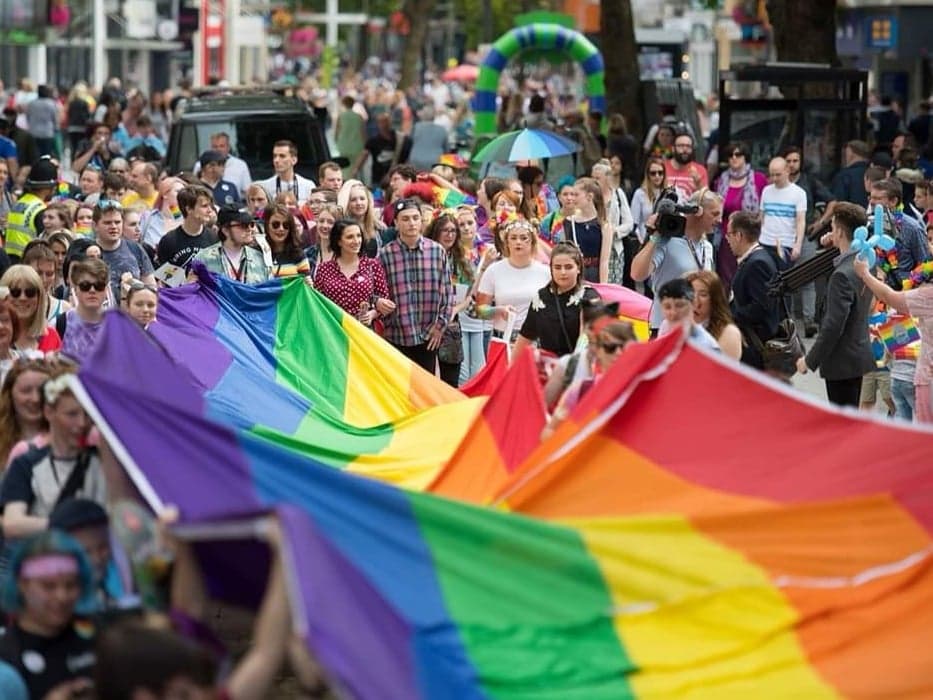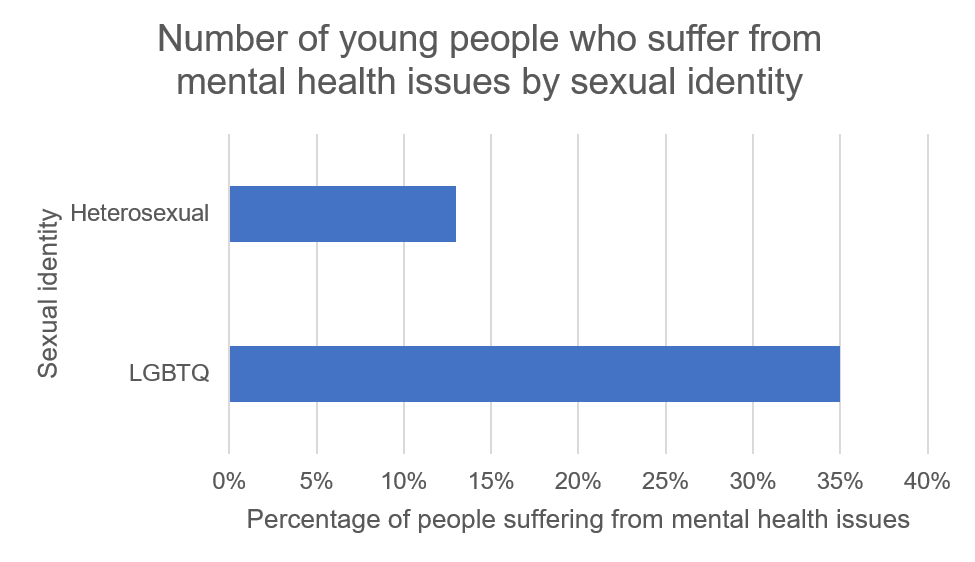With 1 in 4 homeless people identifying as LGBTQ in Wales, is enough being done to tackle the hidden problem of LGBTQ homelessness?

People marching in the Cardiff Pride 2017, Image: Pride Cymru
For most, home is a place of sanctuary, a place of security, a place of safety. It is the foundations that keep our lives rooted.
However, for many, this is not the case. The idea of ‘home’ is a far-off idea that doesn’t resemble their own lives.
In the UK around 300,000 people are homeless, according to the leading homeless charity Shelter. While it is a known fact many sleep rough on our streets every day, what is less known is how the LGBTQ community is grossly over-represented within these figures.
In fact, around 24% of the homeless youth population are LGBTQ, despite only around 5-7% of the population identifying as LGBTQ according to LGBTQ charity Stonewall. This means one quarter of all homeless young people identify as LGBTQ.
The reasons for these statistics are clear. Reports show that LGBTQ homeless people are often rejected from the family home, or have faced significant homophobia and abuse that has led to their homelessness.
“Almost one in four members of the LGBTQ community in Wales experienced a hate crime in 2017 alone”
“A flatmate committed a hate crime against me,” said Amal, 23 from Wales, to Stonewall Cymru. “The police advised me this was illegal and I shouldn’t return. My letting agents tried to force me to return and tried to get money from me for a place that was unsafe for me to live. This scenario made me homeless days before Christmas.”
Despite progress being made with LGBTQ rights, according to Stonewall Cymru’s Hate and Discrimination report, almost one in four members of the LGBTQ community in Wales experienced a hate crime in 2017 alone. And the issue of LGBTQ homelessness highlights the social inequalities in a way like no other.
Here, queer, and vulnerable
There are added vulnerabilities LGBTQ people face when homeless.
LGBTQ people are more likely to suffer from mental health problems. In a study carried out by the NHS released in November, they found LGBTQ teens are almost three times more likely to suffer from mental health problems than non-LGBTQ teens.

Mental health rates in LGBTQ teens compared to heterosexual teens according to NHS data
Ben, a 28 year old gay man, spoke about the difficulties he faced with his mental health after finding himself homeless and being placed in a temporary housing hostel. A place which he felt was unsuitable for his needs.
“I think being gay and identifying as LGBTQ made living there more tough, as I didn’t know if anyone else living there was also LGBTQ,” Ben said in an interview with Mind Out, an LGBTQ mental health charity.
“I feel being isolated like that among other people heightened my anxiety again because it wasn’t a stable place to live.”
In a report by the LGBTQ homeless youth charity the Albert Kennedy Trust, almost 70% of LGBTQ homeless young people had faced parental rejection and suffered physical, emotional or sexual abuse from their own families after coming out. In fact, 77% of homeless young LGBTQ people said their sexual/gender identity was a crucial factor in them becoming homeless.
Being rejected from the family home was in itself “damaging” and likely to cause long-term mental distress, the report said.
Support for the down and out
Wales has one of the only government-funded projects to tackle the issue in the UK.
Shelter Cymru, a leading homeless charity here in Cardiff, has an LGBTQ homeless outreach and awareness project.
“We have a lot of young people approaching Shelter after coming out to their parents and then getting forced to leave their family homes,” said Kath Dobie, head of the LGBTQ project at Shelter Cymru. Shelter also work alongside Stonewall Cymru, having cross-organisation collaboration to provide more nuanced advice for LGBTQ people facing homelessness. Shelter receives £7,000 from the Welsh government a year for their LGBTQ support.
She explained how the project is mainly about raising awareness of the specific issues that LGBTQ people face when homeless, including their increased vulnerability and the factors that often lead to their homelessness. She said that they work alongside housing companies to help promote equality within the housing sector, after Stonewall Wales Cymru found that 10% of LGBTQ people had felt discriminated against while trying to find housing.
“My partner and I were looking to rent a property,” Ceri, 43, told Stonewall Cymru. “There was also another couple interested in renting, who were given the tenancy of the house. When my partner and I enquired as to why we didn’t meet the rental criteria, the estate agent said the landlord decided to let the ‘normal’ couple have it.”
“More needs to be done to ensure the safety and future of the LGBTQ community”
However, despite this, there are no specific LGBTQ homeless hostels in Wales.
In fact, shockingly, the UK only has one permanent LGBTQ homeless shelter.
The shelter, which can be found in London, was granted funding in July. The shelter provides work-access schemes and mental health support.
Bob Green, the chief executive of Stonewall Housing, said in a statement that having a specific LGBTQ shelter was important so LGBTQ people can “access a range of services and social networks” and “celebrate their identity and achieve their full potential.”
However, for the people of Wales, a hostel in London is not an option. Lisa Powell, a campaign activist for Pride Cymru said there needs to be more support for people outside of the English capital.
“The government is not doing enough to help LGBTQ people,” she said. “More needs to be done to ensure the safety and future of the LGBTQ community.”
‘Coming out’ shouldn’t equate to down and out. People should be able to come out in the safety of their own homes, with a roof firmly over their heads.
Every LGBTQ person deserves a home.
